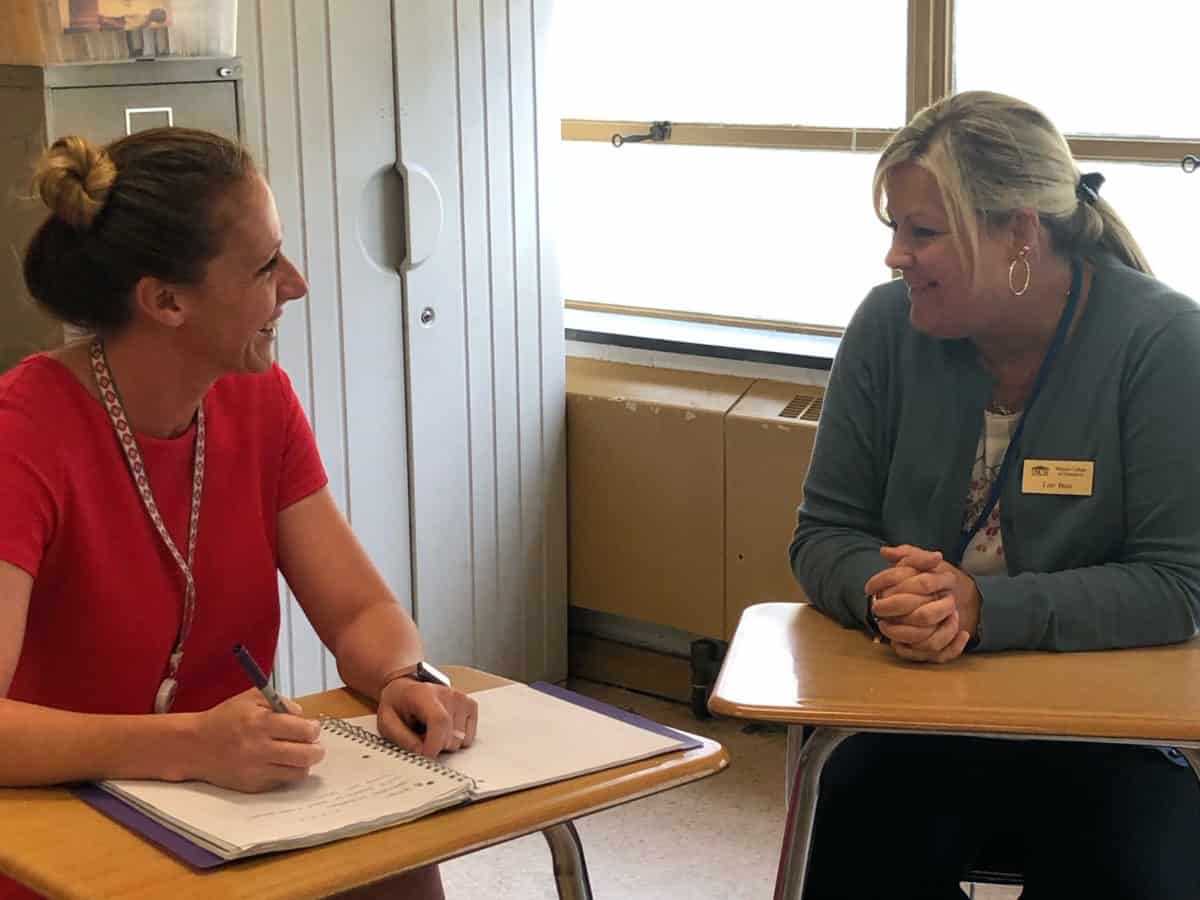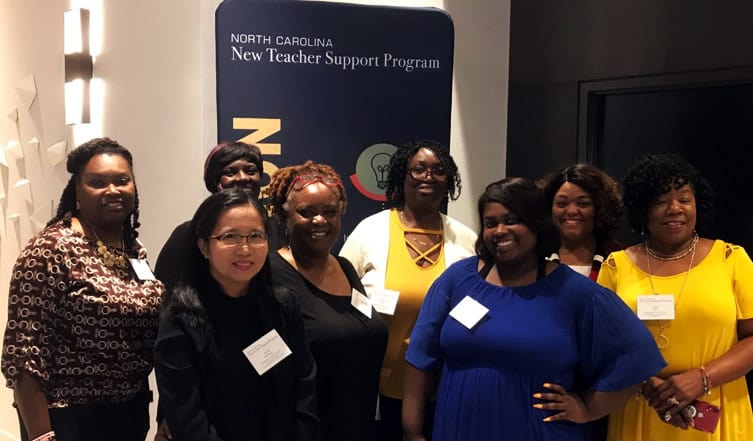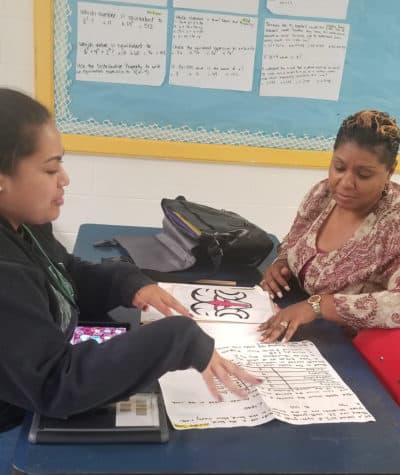
There are many characteristics within a school community that influence student achievement, but no other characteristic has as much influence as teacher quality. There is agreement about this among those who have taught which is also substantiated by a growing body of empirical research that demonstrates that a teacher’s ability to improve student performance — as measured by accountability standards — increases with teacher experience.12
However, during the past 30 years, the number of first-year teachers has increased threefold and the number of teachers with fewer than 10 years of experience has doubled.3 This greening of the teacher workforce is apparent as one takes a walk through their local public school and becomes more apparent when stepping into historically low-performing schools.
Teaching is complex and complicated. A significant amount of on-the-job training is needed to develop the knowledge and skills necessary to become a successful professional educator in any setting. Novice teachers, fresh from their teacher preparation programs, are still developing the tools required to educate proficiently as beginning teachers.
In 2011, the North Carolina New Teacher Support Program (NC NTSP) was developed as a comprehensive, university-based induction program offering a research-based curriculum and multiple services designed to increase teacher effectiveness, enhance skills, and reduce attrition among beginning teachers. In its first year, the program served 35 teachers and was a partnership with two four-year institutions.
Today, the NC NTSP is a collaboration with 10 UNC System institutions that extends mentoring and induction support to 1,200 beginning teachers across North Carolina in over 250 traditional public schools and charter schools. The collaboration with institutional partners allows NC NTSP to leverage existing university-community partnerships and extend support during the most formative years of a teacher’s career.
In December 2019, WestEd released a report as part of the long-running Leandro education case that examines a storied history of education in North Carolina while recommending a comprehensive system of supports to improve the educational opportunities for students statewide. One of the report’s recommendations is to “provide high-quality comprehensive mentoring and induction support for novice teachers in their first three years of teaching to increase both their effectiveness and their retention.” Within that recommendation, the report includes a sub-recommendation to expand access to the North Carolina New Teacher Support Program.
Expansion of the NC NTSP to serve 5,000 teachers across North Carolina would significantly align to the recommendation to increase high quality mentoring for beginning teachers. The NC NTSP offers a suite of services that have been designed to increase retention and effectiveness in the state’s highest-need schools.
Suite of services
The NC NTSP provides a comprehensive induction suite of supports to beginning teachers, their schools, and their districts that are strategically designed to promote student achievement and school improvement. Beginning in the summer, NC NTSP instructional coaches work in unison with partner districts and schools to design and deliver professional development during New Teacher Orientations. Soon after, the NC NTSP holds the Fall Institute, a two-day conference that aligns to the coaching initiatives and supports that will be offered to the teacher throughout the school year.

At the request of our partners and in collaboration with district and school leaders, NC NTSP coaches provide job-embedded professional development at strategic points throughout the year. Realizing school improvement does not begin or end with early career teachers, the NC NTSP makes professional development available to all teachers in our partner districts who can benefit from the skilled modeling, professional practice, and rigorous reflection that takes place in each professional development session. Timely professional development is customizable to meet the needs of our partners both in content pedagogy and duration.
The hallmark of the NC NTSP is the support teachers receive from their assigned instructional coaches. Teachers are assigned an instructional coach — a fully licensed master teacher — to model, develop, and refine instructional moves to improve student achievement. Individualized and differentiated support is provided in-person, reinforcing the professional development provided at Fall Institute and ongoing professional development.
Coaches provide non-evaluative, short-cycle feedback to teachers promoting their development and thereby increasing teacher effectiveness and the likelihood they will remain in the profession. In addition, all coaches in the NC NTSP use a coaching framework as a guide for their mentoring and coaching activities. The framework takes into consideration the unique context of the school and coaches select specific strategies and activities to meet the teacher where they are in their development.

Statewide impact
External evaluations of teachers supported through NC NTSP have shown strong positive effects on student achievement, teacher effectiveness, and teacher retention, consequently disrupting the trends of the teacher workforce in North Carolina. This research prompted the NC General Assembly to demonstrate their commitment to supporting the teacher workforce by allocating recurring funds to sustain the work of the NC NTSP. External evaluation suggests NC NTSP support of residents (former lateral entry teachers) to be a cost effective and sustainable option, ostensibly widening the teacher pipeline by supplementing teacher preparation and enhancing teacher retention.
Analysis of the effectiveness of teachers has yielded mixed results when considering education, degrees, or even years of experience. However, a widely accepted exception is observed when examining the effectiveness of novice teachers. Typically, teachers get better at their job during their first three years.
During this time, novice educators refine their teaching identities, learn about students and their assets to design engaging learning environments, and develop ways to effectively monitor and provide feedback to students to help students learn. Less is known about ways to provide this experience during pre-service educator preparation, resulting in countless professional adjustments being made during an educator’s first three years.
Induction support has demonstrated positive impacts on both teacher effectiveness and teacher retention. The North Carolina New Teacher Support has contributed to these noteworthy effects and has also contributed to positive impacts on student achievement. Through its broad reach, accessibility, and impact, NC NTSP is well-positioned to sustainably support the profession, grow to accommodate increasing demand for induction support, and continue to refine that support to meet the changing demands of an increasingly diverse workforce.
In order to disrupt the trends of teacher turnover and low student achievement in high-need areas, we must increase the supports and mentoring provided to beginning teachers so that they will stay in the field and become experienced teachers.
For more information on NC NTSP, click here, or click here to contact Patrick Conetta, director of teacher induction and development for the North Carolina New Teacher Support Program.





